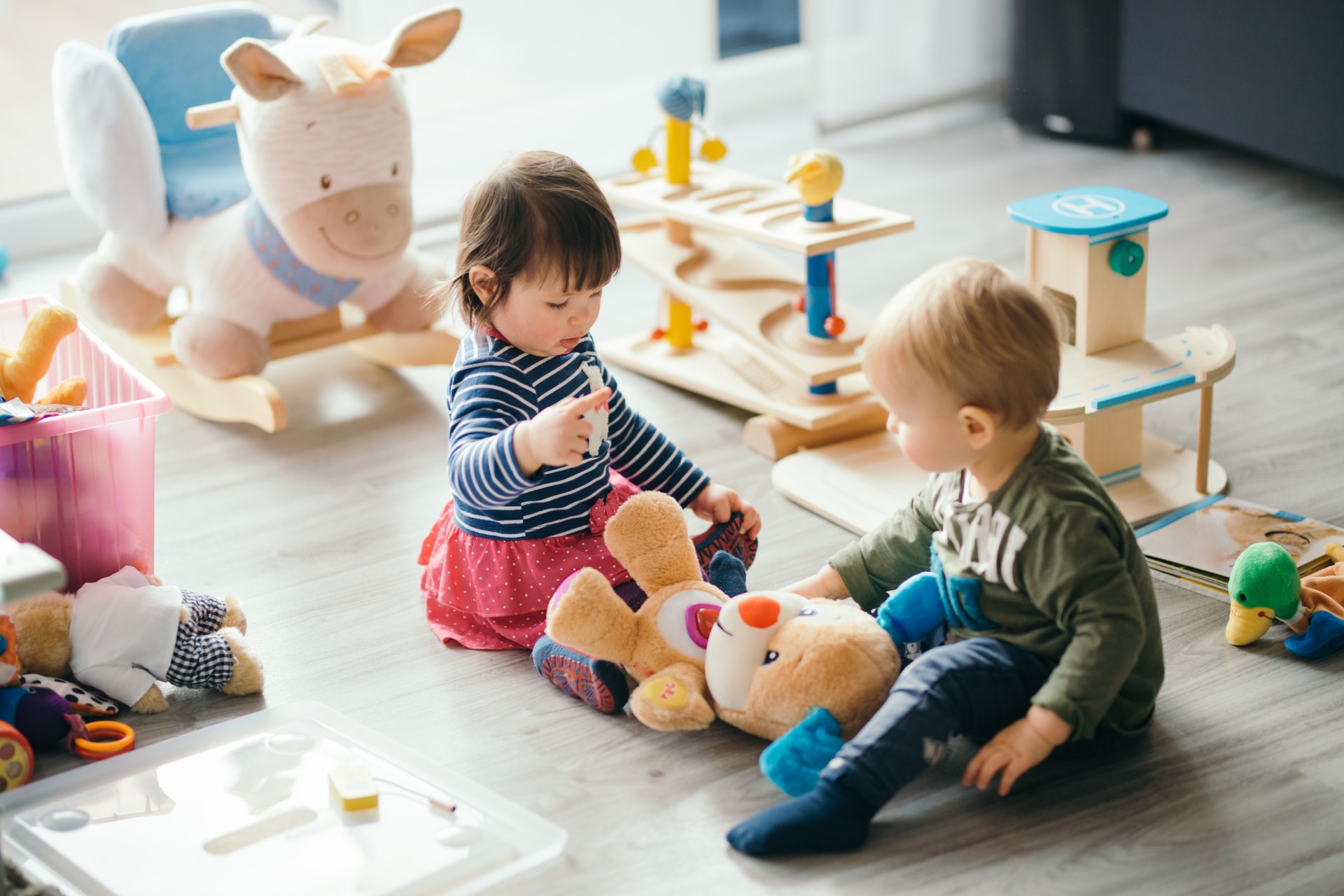Toddler temper tantrums. Meltdowns. Freakouts. Spaghetti limbs. Screech crying that can scare off wildlife. Strength of a thousand horses. Yes, you have a toddler. And yes, they love to throw tantrums. Trying to get ahead of it and keep your child out of situations that would bring on an outburst is best.
If you find that your little one is having more bad days than good, there are some things you can try to correct your child’s bad behavior. We all like when we are noticed for something good we did. It’s the same for your toddler. Let’s look at some ways to encourage better behavior.
1. The environment should be kid-friendly
This might seem too easy, but it can be overlooked. Are you setting your child up for good behavior? If you do not leave your toddler with a clear set of what they can or cannot do, you’re leaving it up to them, and we know toddlers are dangerous when left to their own devices.
It’s not that they mean to—they are trying to find something to do. If you have to leave your toddler alone for a bit, set them up for success. Do they have a toy? A backup toy? Is everything breakable out of the way?
You set yourself up to get work done, right? You get rid of distractions and make sure the necessities (like coffee or a snack) are there for you. Do the same for your toddler.

2. Mentally prepare for when it goes wrong
Because it will. Almost always. The smallest things can trigger a toddler meltdown. From the wrong color cup to the wrong color crackers, it’s only a matter of time. But if you are mentally ready for your toddler to break down or act out, you can react with reason and not anger.
If you react badly, they will respond to that reaction. If everyone remains calm and you can nicely address what went wrong, your toddler will see that and act the way you do. If you already have the worst outcome in your head, you will know how to deal with it in a way that can keep everyone civil.
3. Good old charts
If you are an organized and visual person, your child probably is too. There are plenty of useful behavior charts for toddlers that you can find online. You can also make one or print one out from your local library. You can use stickers, small toys, or whatever works best for you.
If you get your child excited to put a new mark on their behavior chart, they will want to do more things to get more marks. Having that visual element can help your toddler see how often they’ve done something awesome and how close they are to getting a little something or just filling up the page.
4. Get on their level
This is figuratively and literally. Your child is most likely acting out because they are not being seen or heard. Listen. In all of the adorable words that they know, let them tell you why they feel the way they are. We all want to be heard. Just because they may not be able to form long sentences yet doesn’t mean they don’t have anything to say.
Now, get on their level. Crouch down to them. Sit on the floor with them. They will feel like you are really trying to understand them when you get eye to eye with them. You don’t like being talked down to or looked down on, and neither do they, even if they were in the wrong.

5. Lead the way
Yes, you have to be the bigger (not just physically) person. You have to show your toddler that you can’t throw things when something doesn’t go your way. We all hate being watched, but you know you are on your best behavior when someone is.
If you know your child is looking at you while you are handling a bad situation, they will learn to do whatever you do. If you have to scream into a pillow, go to the other room. Do it during nap time. Your toddler can force you to make better decisions and not act out.
If your toddler asks why you look upset or angry about something, explain it to them. It can help both of you. You get what’s bothering you off your chest, and your toddler feels like a big kid who had a grown-up conversation, and you both feel better. Win-win-win.
6. Laugh it off
Parents. Please. Instead of getting upset or frustrated, you need to laugh it off. Once you have both talked it out and are at a good place, have a good belly laugh. This will teach your toddler that one bad moment doesn’t have to mean the whole day is now bad.
Now, please don’t laugh at your toddler while they are trying to explain themselves or talk to you about why they threw their yogurt across the room. But after the episode is done, your child might still feel like they are in trouble or that you might still be upset. A good laugh together can reinforce the bond.
You will probably need a combination of all of these, and maybe more. Adding behavior charts for toddlers for home, in a kid-friendly environment, while keeping yourself calm and ready for anything might be what you try this month. Next month, you might need to rotate something else into the mix.
Know that your toddler is looking to you to set the tone for when things go wrong, or they misbehave. No one is a perfect parent, or even the most okay-ist parent all of the time. You are learning together. Make it as peaceful as a learning environment for you both, and there will be a lot less crying from everyone.



